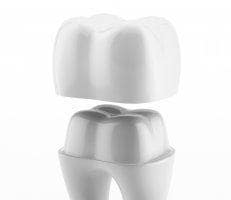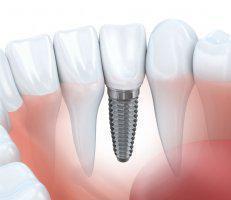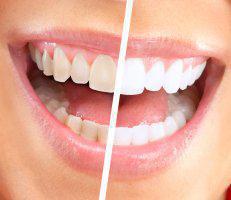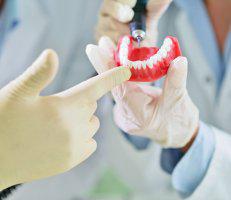Fluoride Treatments
Fluoride Facts
For decades, fluoride has been held in high regard by the dental community as an important mineral that is absorbed into and strengthens tooth enamel, thereby helping to prevent decay of tooth structures.
In nearly every U.S. community, public drinking supplies are supplemented with sodium fluoride because the practice is acknowledged as safe and effective in fighting cavities.
Some private wells may contain naturally fluoridated water.
What Is Fluoride?
Why Is Fluoride Important To Teeth?
Fluoride is absorbed into structures, such as bones and teeth, making them stronger and more resistant to fractures and decay. A process in your body called “remineralization” uses fluoride to repair damage caused by decay.
How Do I Get Fluoride?
Just drinking public water will provide a certain measure of fluoride protection. But for years, health professionals have endorsed the practice of supplementing our intake with certain dietary products, and topical fluorides in many toothpastes and some kinds of rinses. Certain beverages such as tea and soda may also contain fluoride. Certain kinds of dental varnishes and gels may also be applied directly to teeth to boost fluoride intake.
Fluoride at Your Dental Office
At each of your dental visits, until the age of 18, your dentist or hygienist will apply a fluoride treatment to your teeth. This concentrated fluoride should remain on your teeth for one minute and should not be rinsed away for at least a half an hour. This fluoride will strengthen the enamel and make your teeth more resistant to decay.
Crowns
Crowns are caps that restore your tooth function and appearance. When you have a root canal procedure, a cracked tooth, a loose filling, or other types of damage, a crown is usually the ideal restoration. At the office of Allan D.
Dental Implants
Dental implants are the most efficient way to replace missing teeth today. There are two components of dental implants: a titanium post that goes in your jaw and a custom crown that screws into the post.
Teeth Whitening
In-office teeth whitening is the fastest way to get the smile you want. Before getting started, Dr. Schulman uses a cheek and lip retractor to expose your teeth and places small goggles over your eyes.
Emergency Dentistry
Emergency dentistry includes urgent care for all types of sudden damage to your teeth, gums, and other tissues in your mouth. When you experience sudden mouth damage, you need care immediately.
Pediatric Dentistry
Arrange your child’s first visit to the dentist when they get their first tooth, or when they’re 12 months old, whichever comes first. You can stay with your child during the exam — they can even sit on your lap.
Veneers
A veneer is a thin porcelain or resin composite sheet that's custom-sized to fit the front of your tooth. Veneers match the color of the teeth around them so they look natural. Dr. Schulman bonds the veneers to your teeth, so they’re very sturdy. Typically, veneers last about 10-15 years.
Fillings
Amalgam fillings are an alloy containing elemental mercury, silver, tin, copper, and other metals. Although mercury can be harmful alone, the other ingredients stabilize the mercury and make it safe and effective for fillings.
Dentures
Dentures replace lost teeth. They're made using acrylic resin or a combination of acrylic resin and various metals for strength.
All-On-4 Dental Implants
All-on-4 is a hybrid of dental implants and dentures. It’s ideal for replacing an entire arch (top or bottom), or for full-mouth tooth replacement.









